In her culminating article of a four-part series, concert violinist, author and educator Gwendolyn Masin tells a story of how to overcome stage fright by way of inclusive awareness. The character of this story, Michaela, finds herself in an unknown place, on a journey to find answers.
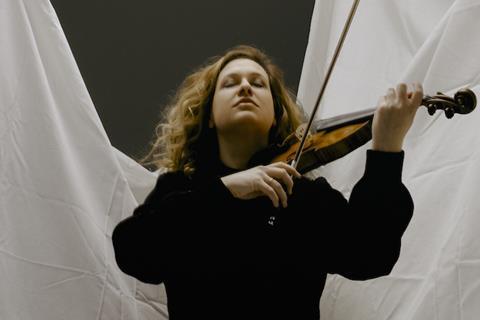
Let’s begin at the beginning, where all good stories begin.
Michaela stirred, her lungs filling with air. She stretched and was suddenly aware of being, as if she had just been born. She took a look around her.
‘Who am I? Where am I? Where did I come from? What am I supposed to do here?” she whispered to herself, amazed at the mellifluous sound of her own voice.
She sought answers to these questions, and so, she stood up and gazed with intensity. To her left she saw an absence of light — blackness like the night extending very high above her and far away. She moved her head to her right, investigating the void beyond her vision. Still, she learned nothing. ‘What is this place?’ she muttered. There was no resonance when she spoke, and she felt as if she was in a very small place, confined. The more she was convinced of this, the smaller she became. Her body contracted, her breath became shallow.
Michaela suddenly felt lost and nervous.
She sat down again, and a thought sat down beside her. ‘I know I am made to create something, somehow, for someone, but what and how and for who? I cannot create in this darkness, especially without knowing the answers to my questions.’
She closed her eyes and began to contemplate. She resolved that she would not search for answers in the world far away from her but turn inward, tapping the walls of her mind to find resonance — answers to her questions. As soon as she opened her eyes again, everything was flooded with a bright, white light. Amazed by the brilliance of this light, her breath rose up to the top of her lungs, high in her chest, close to her throat, and she felt her heart pound and beat beneath her ribs. Her brain fired like an engine revving, chemical and electrical impulses darting around the lobes of her cerebrum. But despite her excitement, there were no answers to her questions.
With renewed determination, Michaela lapped the labyrinths in her brain at great speed. She soon realised that she would not find what she was seeking if she moved with such haste; so, she decided to draw her breath deeper into herself in order to slow down and observe.
Michaela held her hands up and moved them behind her head. ‘I know my hands are behind my head – my left index finger is pointing to my right index finger. I know this, although I can’t see them.’ She reached her hands outward, then placed them at her feet. Her touch recognised the surface of varnished wood. ‘How polished it feels!’ Michaela laid down. She sighed and felt the hardness and safety of the floor. She closed her eyes. She sensed the outline of the back of her body as she lay there and began drawing a map in her mind’s eye — the back of her head, her shoulder blades, elbows and hands, the back of her hips, the back of her legs and feet. Opening her eyes, she looked up and saw the ceiling reaching for the heavens. She released her muscles into the space above and beyond her and began to get a sense of herself. She began to fill and grow into her surroundings. She sat up again and leaned forward until she was laid out flat on her belly. Feeling the hard surface, she understood that at a certain point, this space ended. She peered over an edge. Her eyes drank in the realisation that the world did not stop between heaven and the floor. No, it continued below her like a sea with row after row of deep-red chairs. She climbed down and touched a chair. It was velvety and welcoming. She sat in one of them and rested her arms on its arms.
She decided to name her experience. ‘I am in a hall made of beautiful oak and have been born on stage and have grown into this space. I am now observing the stage from the perspective of others who look and think and feel like me. There are so many chairs, so there must be many others who will come here.’
Michaela now understood the space she was in, but not enough to get started on her tasks which she was eager to perform. Michaela sensed her potency, her power, but was still baffled as to what to do with it. ‘There must be a purpose to this place in which I was born, otherwise I wouldn’t be in it. But what can the purpose be? Thus far there is only one thing that is certain: I am.’
Michaela liked this thought very much and decided to travel deeper. She went back to the stage, laid down on the floor and embarked on a journey into herself.
The floor murmured and hummed in its support of her. She felt vibrations and heard the subtle breath of the wind. ‘Where does this sound come from, and what does it mean?’
Read: Rewiring ourselves to play without fear
Read: The importance of unravelling towards our true height
She sank into the floor, flowed into the ground. She passed the beautiful roots of plants and flowers. She saw brightly-coloured creatures and smelled the vivid scent of soil. She swallowed the taste of one-thousand-one foods that grew from the earth and became evermore conscious of time. When she had gone so deep that she couldn’t go any further, she understood: the centre of the Earth vibrates and emits sound. The very core of the place where we live, is sound.
She observed centuries of human evolution and went to the place of her creation and saw the first thing that can be spotted by the human eye: the beating of an embryo’s heart. ‘The pulse of life is rhythm, and rhythm is the pulse of life’, Michaela noted. She felt that before everything, before life, there had been time. “God is Time”, she thought.
Moved by the beauty and poetry of her revelation, Michaela grew still and so silent that all her questions disappeared. Instead, she experienced the infinite space of the mind which wheeled luminous spiral galaxies of movement, cosmic light, and an endless road of wonder, discovery and bliss.
Michaela was suddenly torn from her ecstatic joy. She knew she had to do more than just be, she had a destiny, she had to be a vehicle for all the world’s rhythm and harmony. She had to be a channel for the music of the world to flow and sound.
She willed herself back. The humming of the Earth’s centre embraced her upward trajectory, lacing her senses in rainbows of sound. She moved through the watery mass — this lake of knowledge — her fingers tingling, her body warm and fluid-like. This journey was so peaceful, so kind and gentle that she felt quite drowsy. She felt, at the same time, lulled into sleep, but also drawn to a need to pay attention to the sounds around her. Michaela steered her mind into a lucid state, repeating what she knew: ‘I am’.
They say that when the gods’ eyes open, a world comes into being that lasts two billion, one hundred and sixty million years.
Michaela opened her eyes. She saw nothing at first and remembered: ‘I am.’ Reborn, she grew accustomed to the light and recognised where she was — in a hall made of beautiful oak. A melody was circling inside her head. She wasn’t quite able to catch it. She noticed there was a presence and then recognised the outline of silhouettes in front of her. ‘One,’ she counted softly, ‘two, three, four…’
Michaela turned her mind back to the melody, trying to grasp it. In the first row sat a woman wearing bright red shoes, her legs crossed, one over the other. She was bouncing her right leg up and down, and it distracted Michaela. She glared at the woman, then at the shoes, willing her to stop moving, to be calm. Michaela was trying to catch a melody and the lady’s shoe was interrupting her focus. Suddenly, Michaela realised that the woman’s tapping was in time with the melody inside her head. She was grinning at Michaela.
Michaela wandered back to her melody. She continued counting, ‘Five, six, seven.’ A little boy in the second row turned to his father and asked: ‘What is that melody?’ Michaela heard the boy’s question and wondered which melody he was referring to. The boy turned to Michaela, and suddenly Michaela realised that he was referring to the melody in her mind.
‘Eight, nine, ten…’ Michaela’s ear lengthened towards the distinct sound of someone unwrapping a sweet — the crackle of a sheath of aluminum. She was irritated and felt like shouting, ‘I’m trying to listen to a melody!’ Suddenly, the melody sprang up from a behind a tree in the forest of her mind. ‘Michaela! Stop being so selfish!’ insisted the melody. ‘Here I am! I’ve always been here. Let that person have their sweet. The sound of the wrapper takes nothing away from the music. It is a sign of life, a sign that you are sharing your melody with someone else.’ Michaela sighed in agreement.
Read: Journey to change – towards a better understanding of ourselves
Read: 7 techniques to combat stage fright
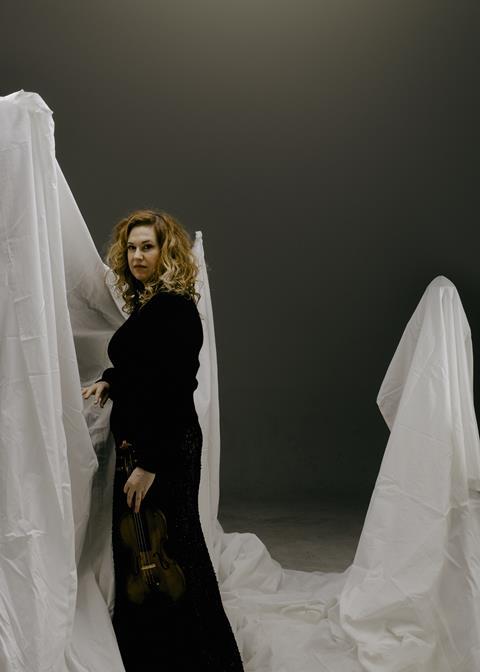
She returned to counting, skipping her melody along endless numbers, pitches, phrases, and undulations of time. When she had counted past many thousands of bars of music and chairs filled with people, she began to swing in resonance with the energy of the audience in the hall.
‘I feel their energy, and they feel mine, and we converse without speaking,’ realised Michaela. The hall echoed with the delights of the sound of anticipation.
Michaela thought, ‘Where do I begin?’ No sooner had she articulated the question, than a longing arose in her, its intent echoing in a distant spring in a mountain. The melody, bubbling and frothing, burst forth from a fountain of irrepressible vastness. ‘I am, and so is music.’
Michaela smiled. She inhaled life’s precious air, filled her lungs, and placed her bow on the string.
Michaela exhaled and began to play, melody spilling through every galaxy like a ray of inspiration, transcending language.
Epilogue and Analysis:
Michaela and the Dream of Music references various philosophies, religious beliefs, movement studies, approaches to meditation, somatic methods, and yoga and breathe awareness, all under the mantle of Indian mythology. The story is loosely based on the birth of Brahma, the creator god in Hinduism. I have borrowed from Hinduism on purpose, as I find that there is a distinctive reason why classical musicians sometimes fear or dread performing — sometimes to a point of debilitating panic, or with feelings of mortification and terror. This distinct reason has a lot to do with the culture of how classical music is presented to its audience and/or listened to.
Indian classical musicians, African musicians, and rock and pop musicians, rarely complain of feelings of dread when it comes to performing. This has a lot to do with the function of music to the player. Amateurs often feel great joy at the chance to perform and seem outgoing in comparison to professional classical musicians. Musicians who perform for church services see themselves as part of the overall celebration, as opposed to the centrepiece. Indian classical musicians are trained much in the way of yoginis – they live with their teacher, are often nurtured daily with lessons, and are supported in an ongoing manner. African musicians are not raised to be competitive – they do not fear music or judgement. Rock and pop musicians rarely have inhabitations with their audience – they feel deeply connected to their audience and have their audience in mind throughout their artistic process, from writing the song, to rehearsing it and finally, performing it. Put in the words of today’s marketing strategies, rock musicians identify their audience long before that audience ever hears of the musician.
Compare any of these musicians to classical musicians and the differences are jarringly obvious. Classical musicians are usually raised in a competitive atmosphere where impossible goals are set. By impossible I am referring to performances that are edited and listened to on recordings. They compare themselves or are compared to icons, and of course, the purported expectation of the audience. On top of all this, public opinion of classical musicians. Just look at salaries. For example, at universities the income of musicians versus those of other professors is measurably lower. There is an unbearable expectation in society that music be consumed for free. The lobby for musicians is not nearly as vocal or visible as it is for other job sectors.
It is not easy to approach classical music with equanimity.
Analysis
A fictive character, Michaela, finds herself in an unknown place, and in a heightened state of anxiety. By asking herself existential questions, she tries to make sense of things. This line of questioning does nothing for her sense of calm – she becomes increasingly nervous and begins to hyperventilate.
Michaela decides to sit down and meditate, drawing awareness to her breath. By doing so, she influences her stress response, down-regulating her sympathetic nervous system. By way of steering her breath, she puts herself back in the drivers’ seat. Rather than running headlong into a blur created by panicked, short breaths — allowing space between breaths also allows space for Michaela to make informed decisions. Decisions made with a calm mind and body allow for greater freedom than those made when under pressure.
She discovers the environment she inhabits by way of her senses, including kinaesthesia, in her exploration of her surroundings. For example, by lying down with her back on the floor, she allows her body to receive feedback from this surface, which in turn informs her of how she feels within her body – she improves proprioception and interoception and uses what is usually a position of rest to learn about herself.
Read: Kim Kashkashian’s top 5 tips on combatting stage fright
Watch: Violinist Midori on coping with stage fright
She practises inclusive awareness from a very early stage in her understanding of her journey. For example, by taking in the size of the place she finds herself, rather than reverting to apprehension, she is awed by the massive size of the hall and enjoys the amount of space she has to flourish in. By taking in the stage from an audience members’ standpoint, she gains a more complete view of the experience of the audience, drawing them into her preparation. By facing her fear of criticism or judgement, she moves towards remedying her anxiety. By drawing on her awareness of ‘I’ she gains confidence and responsibility for her actions, which in turn lends her independence. In other words, she shakes off self-consciousness and replaces it with self-awareness. She quickly comes to realise that the audience has come to listen to the music, not to observe her. Michaela would not need to play if the audience had come just to see her. She puts things into perspective and remedies the pathology of self-consciousness.
Moreover, Michaela moves from a ‘fragmented’ state of mind to a holistic one, which I discussed in my previous article ‘Rewiring Ourselves to Play Without Fear’ wherein I discussed the benefits of yoga. Although we as people, as a collective, participate in the activities of the universe, most of us feel that we are separate individuals and that our experience is limited only to ourselves. In actuality, we are a mass of wholeness, interconnected, capable of feeling or influencing one another without a need for words. In becoming sympathetic towards one another, we break down the ‘invisible wall’ that is so often artificially created between players and their audience.
Michaela is reborn after her journey, during which her perception of danger and anxiety are described by way of metaphor. When a human being perceives danger, the circuits of the brain stem turn on and the circuits that lead to higher brain functions turn off. However, when existential issues are no longer our primary concern, the neural circuits that communicate with higher brain functions open, and we can enter into a world of diverse experience.
Michaela begins to practise and prepare her melody. By allowing herself to go down the path of distraction, even being outright indignant that people dare to make noise or move while she plays, she practises inclusive awareness. She goes to that place many musicians fear and asserts a strategy wherein she embodies her emotions and frees up her imagination. Rather than pretend that the whole audience is in their underwear (or some other archaic and frankly, disrespectful exercise in belittling others in order to feel superior), she allows herself to experience trepidation. In so doing, she leaves her capacity to freely imagine open for when she will need it – which will be when she begins to perform.
Michaela also confronts hostility – even that really niggling kind, the one we feel towards ourselves. By literally facing the music, she acknowledges that part of herself, or people in the audience, may feel hostility towards her. By seeing the higher purpose of things she practises compassion – for herself and others.
The bubbling over of music is analogous to the connection we make with the music we play while we play it. When we are embodied, our relationship with music, as well as our instrument, our surroundings, or companions on stage, our audience, and ultimately, ourselves, is in constant, easy sympathy.
Michaela’s smile and joy of playing represent the feeling of gratitude that I believe artists have when they perform, and indeed, when they experience the process of making art. If one can forever hold on to that sense of wonder, amazement, and gratitude for weaving some of life’s most precious and indescribable things into daily life, I believe we will overcome everything and will arrive where we intended to go: on stage, to make music and share it with others.
Gwendolyn Masin is a concert violinist, artistic director, PhD scholar, author, and educator. She has been Professor of Violin Studies at the Haute École de Musique de Genève, Switzerland, since 2013. She began The Exhale, a series of holistic music masterclasses, workshops and retreats in 2019. The goal — to fulfill the need for holistic wellbeing as the foundation for successful performance and career development. It is designed for professional and amateur musicians.
During a hugely challenging time for the arts and culture worldwide, she brought The Exhale online in 2020 in order to continue its mission. Gwendolyn authored her own award-winning method for teaching beginners. It is called Michaela’s Music House and is available in English and German. Gwendolyn is also founder of the annual GAIA Music Festival in Switzerland since 2006 and co- founder of the International Master Course by Dublin’s National Concert Hall that takes place during the summer. Gwendolyn has recorded for labels such as Naxos and most recently, for Orchid Classics. During lockdown, she has enjoyed the perks of young motherhood, relearning the piano, and practising every day: be it yoga, violin, or the patience to come to grips with digital technology.
https://www.michaelasmusichouse.com
www.tara.tcd.ie/handle/2262/64557
Reference

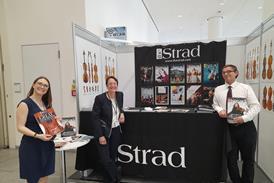

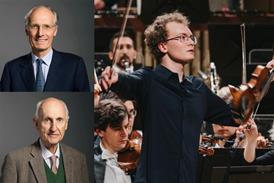
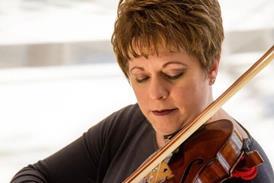

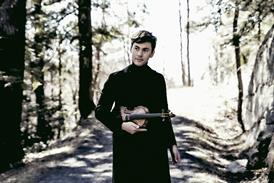




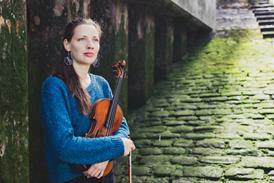
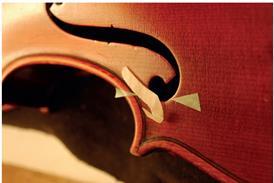
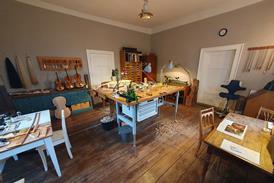
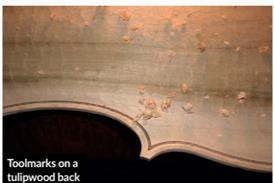




















No comments yet